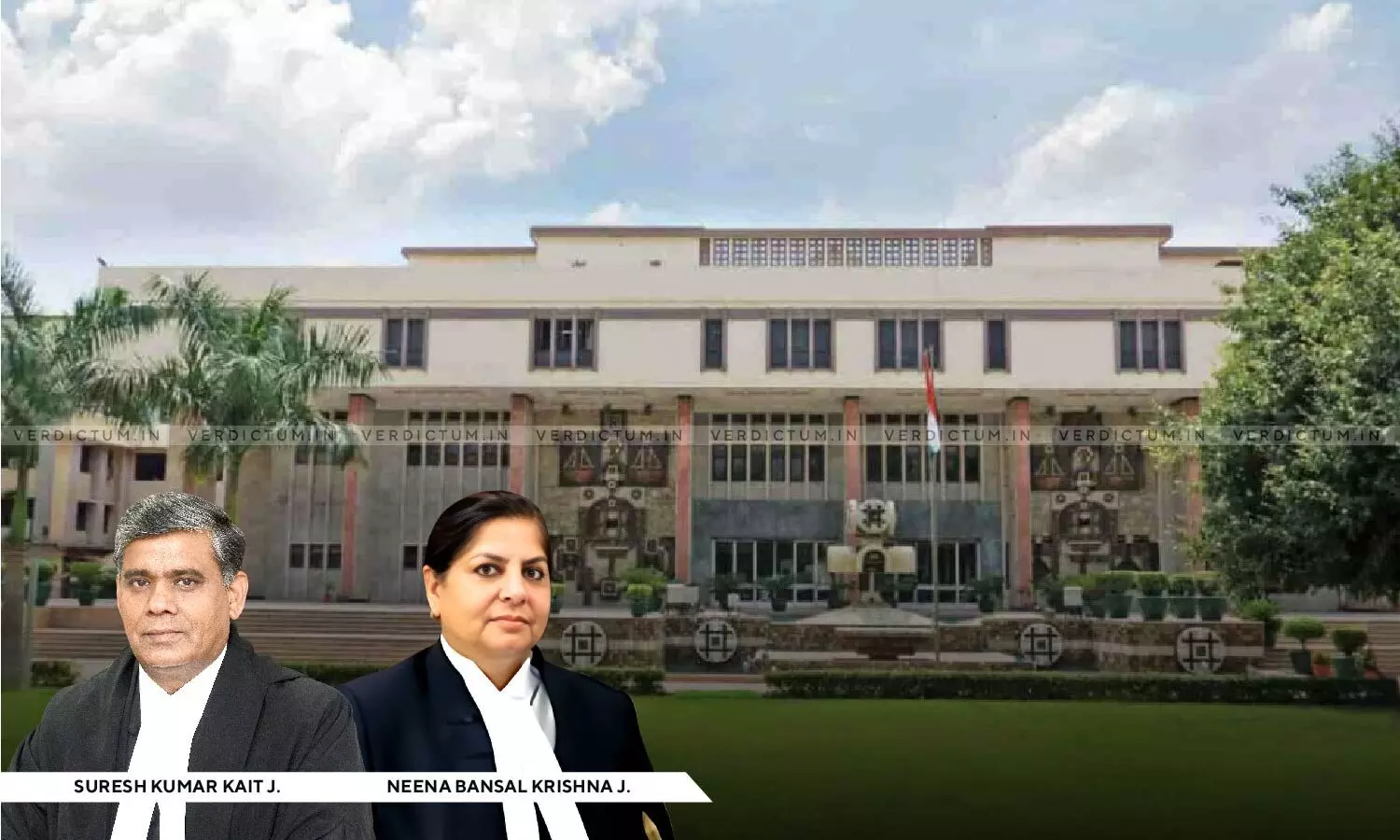
Long Separation Of 11 Years Peppered With False Allegations & Complaints Is Mental Cruelty: Delhi HC Grants Divorce To Husband
 |
|While granting divorce to a man, the Delhi High Court held that the long separation of 11 years between the parties peppered with false allegations and complaints amounts to mental cruelty.
The Court was dealing with an appeal under Section 19 of the Family Courts Act, 1984 filed by the husband against the judgment and decree of the Family Court by which his divorce petition was dismissed on the ground of cruelty under Section 13(1) of the Hindu Marriage Act, 1955 (HMA).
A Division Bench comprising Justice Suresh Kumar Kait and Justice Neena Bansal Krishna observed, “The parties are separated for about 11 years and the adjustment issues started mushrooming within the very first month of their marriage which were of such nature that the marriage could not even survive for more than 6 months. There is no chance of reconciliation between the parties and such long separation peppered which false allegations and complaints have become a source of mental cruelty and any insistence to continue this relationship would only be inflicting further cruelty upon both the parties. … The separation for more than eleven years for no fault of the appellant, in itself is an act of cruelty.”
The Bench said that the marital discord between the parties has pinnacled as there is a complete loss of faith, trust, understanding and love between the parties and such long separation brings with it deprivation of conjugal relationship and co-habitation which is the basic foundation of any matrimonial relationship.
Advocate U.M. Tripathi appeared on behalf of the appellant/husband while none appeared on behalf of the respondent/wife.
In this case, the husband claimed that soon after coming back from the honeymoon in 2011, his wife started putting pressure upon him to take her to her parental home and extended threats that in case she was not taken, she would commit suicide and falsely get him and his family members implicated in frivolous cases. He was thus, compelled to take her to the parental home and then persistently tried to persuade her and even visited the same to bring her back. She remained adamant but was persuaded by her family members to return, however, the husband was humiliated and insulted by her father and brother.
Eventually, the wife left the matrimonial home along with all her belongings and valuables and all the efforts of the husband to bring her back did not heed any positive result. On serving upon a legal notice to the wife, she replied by making false allegations of dowry demand against the husband. She also made a complaint against him in Aichik Bureau and on appearing there, the husband and his uncle were abused and beaten up by the wife’s family. An FIR was also filed against him and his family members under Sections 498A, 323, and 506 of the Indian Penal Code (IPC). Thereafter, the Family Court dismissed the divorce petition and hence the husband approached the High Court.
The High Court in view of the facts and circumstances of the case noted, “Making of such serious and unsubstantiated allegations without placing on record any evidence clearly reflects the vindictive nature of the respondent. It only shows that she has taken this stand to cover her own wrongs as she had adjustments issues owing to which she left the matrimonial home on multiple occasions. … The marriage between the parties survived for barely six months and conciliatory efforts initiated by the appellant by sending a Legal Notice and requesting the respondent to return to the matrimonial home and also the proceedings before the Aichik Bureau did not help in their re-union.”
The Court said that the wife was unable to adjust in the matrimonial home and there were adjustment issues between the parties. It added that she did not produce any evidence to show that any conciliatory efforts were made by her or that she was willing to return to the matrimonial home.
“The Apex Court in the case of Samar Ghosh v. Jaya Ghosh (2007) 4 SCC 511 observed that in a marriage where there has been a long period of continuous separation with no possibility of reconciliation, it can be termed as mental cruelty to continue such a dead marriage”, it further observed.
Accordingly, the High Court allowed the appeal and granted divorce to the appellant.
Cause Title- ABC v. XYZ (Neutral Citation: 2024:DHC:147-DB)